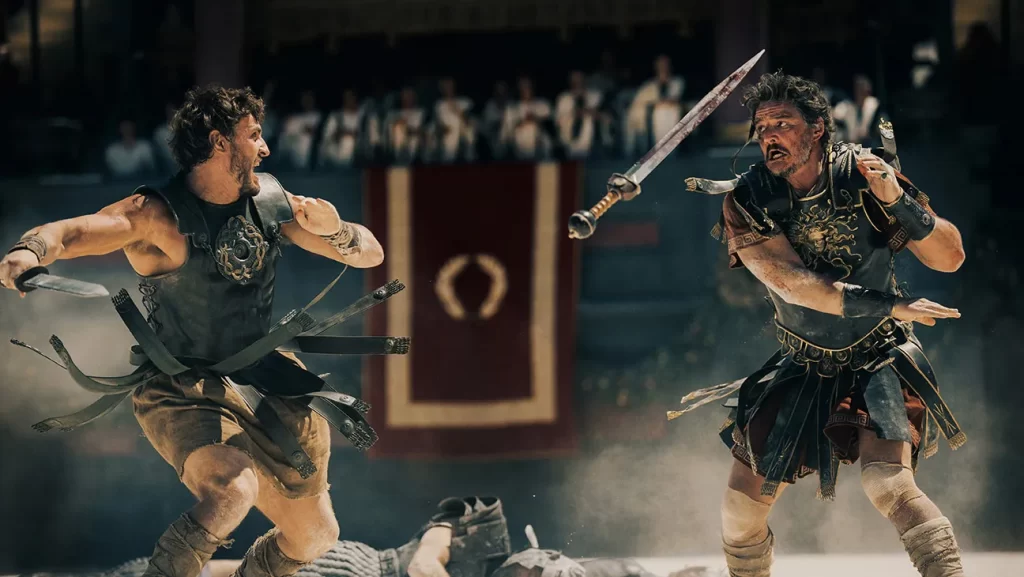
One of the more memorable lines of Ridley Scott’s Gladiator was its hero’s insistence that what we do in life echoes in eternity. Maybe not, but it definitely echoes in sequels. Gladiator II, Scott’s quarter-century-later follow-up to the Best Picture winner of 2000, takes great pains to (strength and) honor its predecessor—not just by recalling dialogue or by repeating themes (the screenplay is by David Scarpa), but by crafting a story that latches onto the original’s skeleton like a necromantic barnacle. The result is less a mighty statue than a wispy hologram, aiming to resemble its predecessor but struggling to acquire its weight or texture.
The concept of diminishing returns in Hollywood is hardly new, and besides, it seems unfair to ding Scott and Scarpa for modeling so faithfully off of their existing blueprint. After all, what is a sequel but a continuation? Still, in its early going, Gladiator II threatens to develop its own personality, hinting toward narrative independence, if not stylistic novelty. Sure, the first time we see Hanno (Paul Mescal), he’s tending crops on his farm, a symbol of classical masculinity that inevitably recalls Russell Crowe’s Maximus dreaming of golden fields of swaying wheat. But any thoughts of gladiatorial combat or imperial destiny are far from Hanno’s mind; a legionnaire living in the humble province of Numidia, his more pressing concern is the advancing Roman army, led by a brilliant and ruthless general named Acacius (Pedro Pascal).
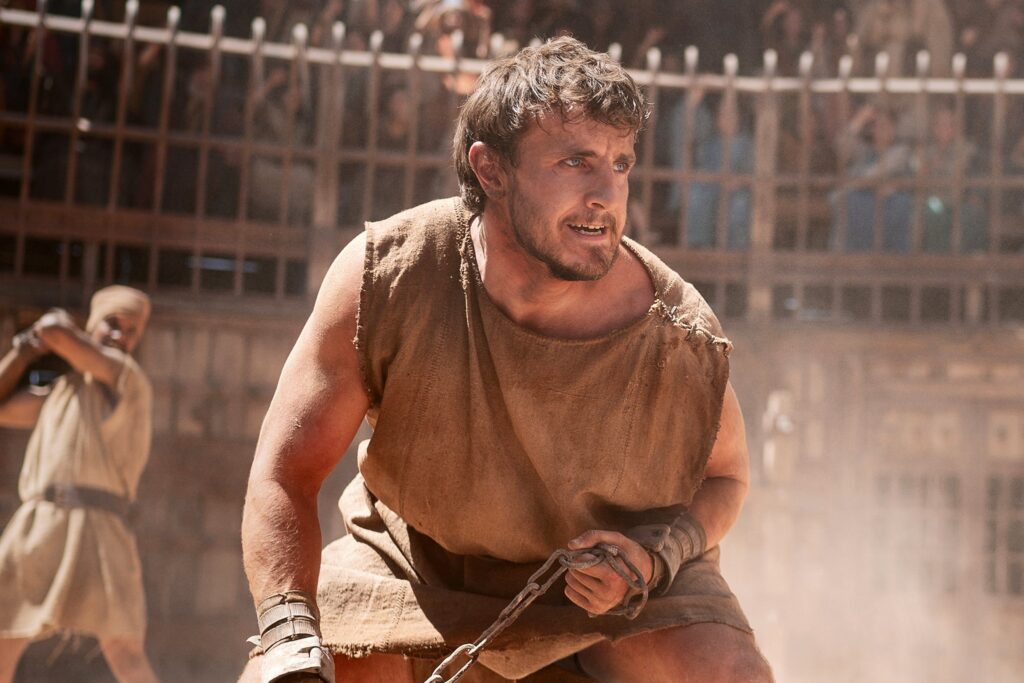
Scott turns 87 later this week, but his age hasn’t deprived him of his enthusiasm for large-scale action scenes, which he stages here with characteristic brio. The opening attack on Numidia isn’t exactly lucid in its choreography, but it’s a robust and muscular sequence that reveals its director’s geometric curiosity; he examines how heavy ships glide across the sea before their occupants scale castle walls, their assault pivoting from horizontal to vertical. Scott isn’t exactly unconcerned with his human characters—if anything, the script attempts to imbue them with too much sonorous solemnity—but he remains most engaged when purveying destruction. Above all, Gladiator II is an ode to antediluvian equipment and weaponry: catapults launching orange fireballs into the sky, oars slashing through the water as part of a coordinated ram, arrows raining bloody death from above.
Hanno appears to be a skilled military lieutenant—he is fond of empowering his troops with the rather limp tautology, “Where death is, we are not; where we are, death is not”—but the plot requires that he be captured and sold into slavery. During a quasi-audition, his powerful physique and blinding rage catch the admiring attention of Macrinus (Denzel Washington, splendid), an amoral trader of humans with stealthy political ambitions. Hanno’s motivations are more primitive—he vows vengeance against Acacius, who didn’t just invade his homeland but also slew his wife—and Macrinus promises him the chance to slake his bloodlust, provided he racks up a few kills before the vulgar masses.
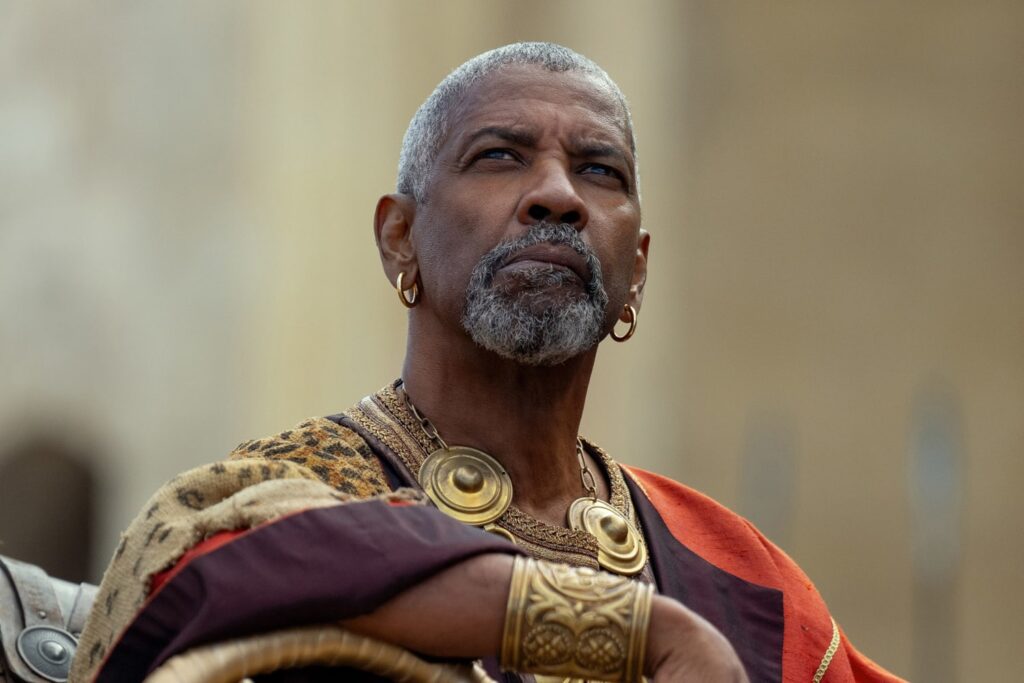
To risk quoting Maximus again: Is this not why you are here? The purpose of Gladiator II—or at least, what should have been its purpose—is to supply elemental thrills within the Colosseum, an arena of blood sport where raving crowds exhort athletic warriors in the ultimate must-win game. And in this regard, the movie mostly delivers. It’s not quite exhilarating: The score, by Harry Gregson-Williams, isn’t very stirring, and an early melee in which Hanno grapples with plainly artificial baboons shows the strain of digital effects. But the subsequent fight scenes—a skirmish against a gigantic rhinoceros, a naval battle that turns vessels into bumper cars, a one-on-one duel freighted with anguish—unfold with clarity and vigor. On the whole, you will be entertained.
Well, in the amphitheater at least. Outside of it, as a faux epic, Gladiator II labors to tell a sweeping story of palace intrigue, full of maneuvering, longing, and betrayal. There are a pair of deranged tyrants (Joseph Quinn and Fred Hechinger), a few obsequious senators (Derek Jacobi returns as Gracchus) and a familiar face in the form of Connie Nielsen as Lucilla. You remember Lucilla, right? In the first film, she was the beautiful sister of the sniveling Emperor Commodus, whom Maximus killed in the climax; now, she is the wary wife of Acacius.
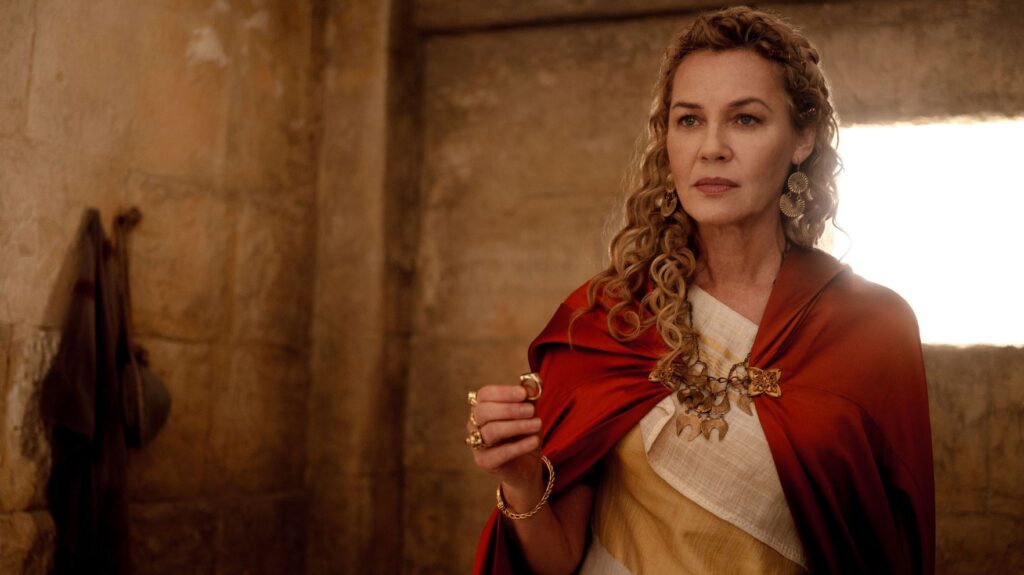
It’s nice to see Nielsen again, but her emergence doubles as a warning beacon, signaling a narrative path that frantically chases its own tail. Hanno is revealed to be not just an ordinary (if extraordinary) fighter, but a man of a certain noble lineage, connected to the original Gladiator in ways that are familial as well as thematic. (I’m being intentionally vague, though the second trailer isn’t so decorous; remember, trailers are bad.) The more Gladiator II stresses its association with its ancestor, the deeper it sinks into a swamp of repetition, dulling its primal pleasures and emphasizing its relative inadequacy.
It’s a stupefying miscalculation (I am perversely reminded of Star Wars: The Rise of Skywalker), and one that does Mescal no favors. The actor is an imposing presence, and he isn’t without charisma, but at this point in his career he lacks Crowe’s preternatural ability to transform stock heroes into complex men of rich interiority. In fact, Hanno is the movie’s least interesting character; Acacius carries a hint of inner conflict, which Pascal does his best to underline, while Quinn and Hechinger bring sparks of eccentricity to their ghastly villains.
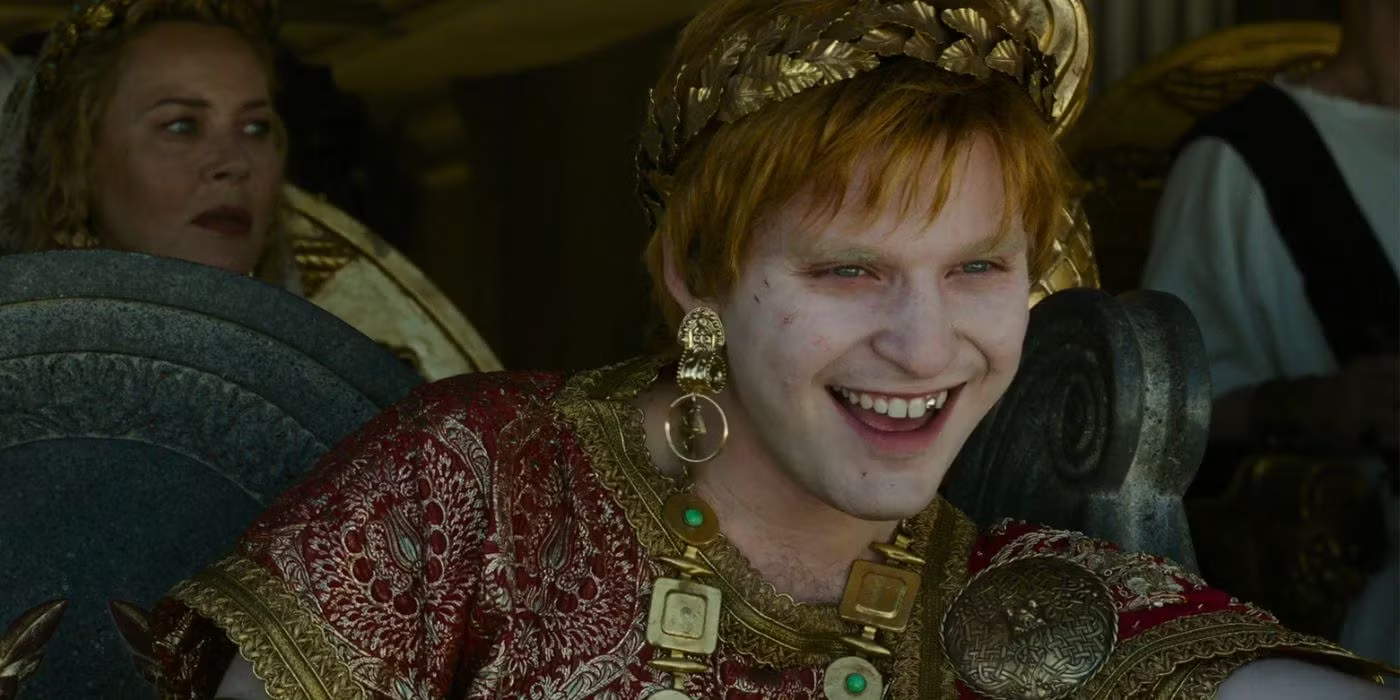
And then there is Washington, who is the only person on screen who seems to realize that he’s appearing in a swaggering, meaty blockbuster. With his flowing gold cape and blinding white teeth, Macrinus is always the sharpest and smartest man in the room, and Washington invests him with a cagey intelligence that in no way undermines his wolfish charm. You may even root for him, especially as the film’s third act disintegrates into a laughable political thriller, with totemic rings and colliding armies and clanking speeches. As a brawny actioner, Gladiator II is reliably watchable. But where greatness is, this movie is not.
Grade: C+
Jeremy Beck is the editor-in-chief of MovieManifesto. He watches more movies and television than he probably should.
